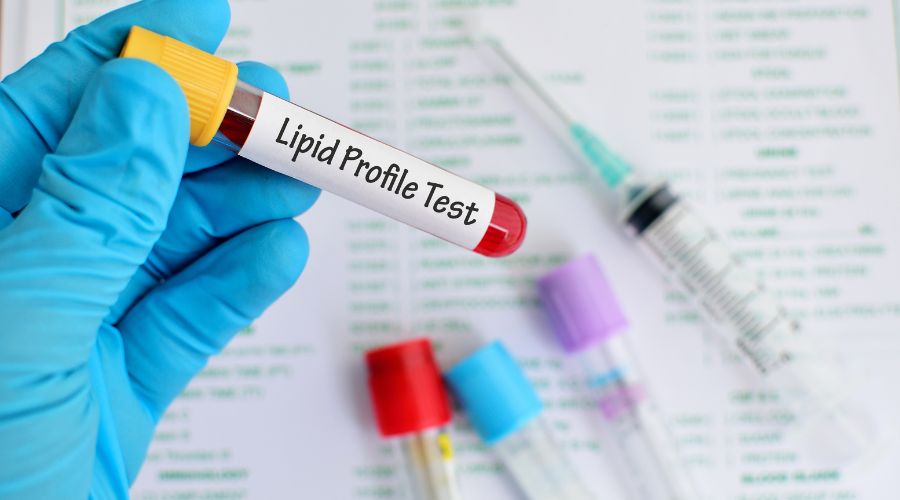A Lipid Profile Test is crucial in preventing heart disease as it provides valuable insights into the levels of fats (lipids) in your blood. Imbalances in these lipids, particularly cholesterol and triglycerides, are key risk factors for cardiovascular issues. Here’s why the test is essential for heart disease prevention:
1. Identifying High Cholesterol and Triglycerides Early
Heart disease often develops silently, and the Lipid Profile Test helps identify dangerous levels of cholesterol and triglycerides before they lead to serious problems. High LDL (bad cholesterol) and triglycerides are major contributors to plaque buildup in the arteries, which can cause blockages and increase the risk of heart attacks and strokes.
2. Assessing Heart Disease Risk
The test provides a comprehensive picture of your cardiovascular health by measuring:
- HDL (good cholesterol), which helps remove excess cholesterol from your bloodstream.
- LDL (bad cholesterol), which contributes to plaque buildup in arteries.
- Triglycerides, which can increase the risk of heart disease when elevated. By understanding these levels, doctors can assess your heart disease risk more accurately and take proactive measures to manage it.
3. Enabling Early Intervention
A Lipid Profile Test helps detect potential issues before they become severe. If your levels of LDL or triglycerides are high, early intervention through lifestyle changes, medication, or dietary adjustments can significantly reduce your risk of heart disease. Regular testing also helps track the effectiveness of ongoing treatments.
4. Monitoring Cholesterol and Heart Health Over Time
For individuals at risk of heart disease or those with existing conditions, regular Lipid Profile Tests are essential to monitor cholesterol levels and overall heart health. This test provides ongoing data to evaluate whether treatments or lifestyle changes are successfully keeping cholesterol levels in check.
5. Creating Personalized Prevention Plans
Based on the results of the Lipid Profile Test, healthcare providers can design tailored prevention plans. For example, if high LDL is detected, the doctor might recommend a healthier diet, regular exercise, or medications such as statins to manage cholesterol levels and prevent heart disease.
6. Cost-Effective and Non-Invasive
The Lipid Profile Test is a simple, non-invasive blood test that provides significant insight into your health. It’s an affordable way to monitor your risk for heart disease and take necessary steps to improve your cardiovascular health.
In conclusion, the Lipid Profile Test is essential for heart disease prevention as it helps identify lipid imbalances early, assess heart disease risk, and guide personalized treatments. Regular testing plays a key role in preventing cardiovascular problems and maintaining long-term heart health.









